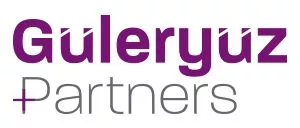The Law of Fees No.492 [“Law No.492”] regulates the fee to be collected in enforcements procedures of international arbitral awards before Turkish courts. Pursuant to Article 3 of the Law No.492, the decision and writ fee for the execution of arbitral awards should be charged in accordance with the nature of the arbitral awards. The first paragraph of the subsection titled "III-Decision and Judgment Fee" of the section titled "A) Court Fees" of the Tariff No. 1 was amended by the Law No. 6728 [“Law No.6728”] on 15.07.2016, regulating that no fee will be charged in arbitration proceedings in accordance with the proportional fee provisions specified in the tariff. However, neither the law nor court precedents are clear as to whether the fee exemption is applicable to enforcement matters as well.
Enforcement of Foreign Arbitral Awards
Pursuant to the International Private and Procedural Law No.5718 [“IPPL”], the condition for the finalized foreign court and arbitral decisions to have a judgement and result in Turkey, in other words, to gain enforcement capability, is to file a recognition and enforcement case before Turkish courts. Please see our article “Enforcement of Foreign Arbitral Awards in Turkey” here for more information.
The Issue of Fixed and Proportional Court Fees
Article 3 of the Law No.492 stipulates that “According to the nature of the arbitral award, the decision and writ fee is deducted from the annotations given by the president of the court or the judge, stating that the execution of the arbitral awards is necessary. Also, foreign arbitral awards and cases that are required to be settled by arbitration in accordance with the law are subject to fees in the same way.”
In accordance with the amendment introduced by the Law No.6728, the proportional fees in the Tariff No. 1 of the Law No.492 are calculated as follows: “In cases where the subject matter is related to a certain value, if a decision is made on the merits, it is calculated over the value in dispute. In arbitration proceedings, no fees are charged according to this provision.” The second sentence of the provision clearly states that proportional fees will not be charged in arbitration proceedings. Nevertheless, there is still no consensus in court decisions regarding the fee to be collected in the enforcement of foreign arbitral awards.
As a matter of fact, in its decision numbered 2019/812 and dated June 27, 2019, the Joint Civil Chambers of the Court of Cassation ruled as follows: “In this case, it is accepted that proportional fees will not be charged in the enforcement cases of foreign arbitral awards, since it has been regulated that proportional fee will not be charged for arbitral awards rendered in Turkey. However, since this regulation is related to a proportional fee, a fixed fee will be charged. On the other hand, since the fee will be imposed according to the date of the decision and this amendment of law, which entered into force after the decision to resist, will also be applied to the pending case, considering that the reversal of the provision of resistance, which states that the decision and verdict fee will be fixed in the concrete dispute, will not have an effect on the result due to the above-mentioned law change, no ground for reversal has been made.” In this respect, the court emphasized that the amendment brought by the Law No. 6728 has changed the practice towards the collection of fixed fees. In the decision of the Istanbul 16th Court of Appeal numbered 2020/67 and dated January 17, 2020, it was stated that “it is not appropriate to rule on the proportional fee where the enforcement of the arbitral awards is subject to a fixed fee.” Again, Istanbul 15th Court of Appeal ruled in favor of fixed fees in its decision numbered 2021/1074 and dated June 1, 2021.
On the other hand, in a recent decision of the 11th Civil Chamber of the Court of Cassation numbered 2021/3966 and dated April 22, 2021, the majority approved the proportional fee, while the dissenting vote noted that a fixed fee should be awarded. Again, in the decision numbered 2018/1042 and dated February 28, 2018, the 19th Civil Chamber of the Court of Cassation
decided that proportional fees should be charged in case foreign arbitral awards are related to a certain claim. In another decision of the same chamber numbered 2017/3958 and dated May 18, 2017, the ruling was also in favor of collection of the proportional fee.
Conclusion
According to Article 36 of Law No.6728, proportional fees will not be charged in arbitration proceedings. Nevertheless, considering the contradictory decisions mentioned above, it is necessary to ensure the unanimity of case law and eliminate the ambiguity. Accordingly, no proportional fees should be charged for the enforcement of foreign arbitral awards from now on.
The content of this article is intended to provide a general guide to the subject matter. Specialist advice should be sought about your specific circumstances.
We operate a free-to-view policy, asking only that you register in order to read all of our content. Please login or register to view the rest of this article.


